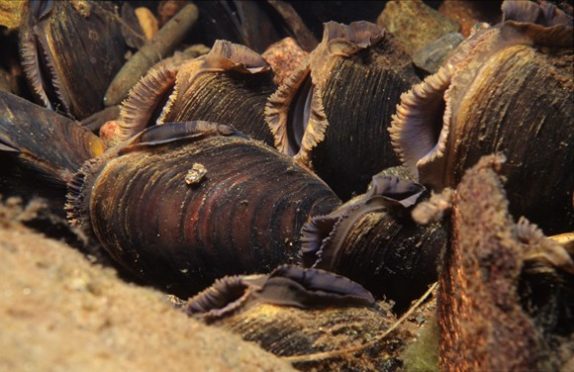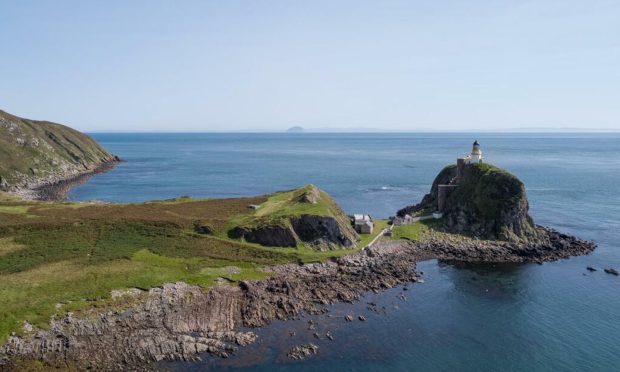There is fresh hope for the future of a rare freshwater pearl mussel after a new discovery in the north.
The successfully-breeding population was found in one of the tributaries of the River Spey in an area of native woodland by a graduate.
It gives fresh hope to scientists working to conserve the rare mollusc.
Kieran Leigh-Moy has been working on a Scottish Natural Heritage (SNH) project to understand why the declining populations of freshwater pearl mussels in the river were not breeding and locate sites where they could be reintroduced to help their recovery.
While developing a method for identifying the most suitable locations, he came across a previously unknown population which, significantly, contained juveniles.
Freshwater pearl mussels can live up to 280 years old, but the species is critically endangered as a large proportion of the populations across Europe have not been successfully breeding for several decades.
Mr Leigh-Moy said: “I’d already identified this river as potentially having good quality habitat, so was visiting the site to conduct more in-depth surveys to see if it would be a suitable site for a reintroduction, but was stunned to find juvenile freshwater pearl mussels already there.
“It’s really rare to find a new population of these mussels, and especially one that is breeding successfully, so it was a really exciting moment.
“What’s particularly significant is that the juvenile mussels found were many miles away from the nearest known breeding population and that’s good news because it could help to prevent further range contraction of the species.”
It is hoped the approach he has developed can be used to help conservation efforts and find good habitat for freshwater pearl mussels at other locations.
The pearl mussel is a strong indicator of good environmental conditions and their recovery in this part is likely testament to sensitive land management in the area.
SNH and Forestry and Land Scotland are working to promote this kind of land management, which includes reducing pollution and establishing riverside woodlands, through their support of the Spey Catchment Initiative.
Giles Brockman, from Forestry and Land Scotland, said: “This is really exciting news.
“Forest management is not just about trees and this is a strong indication that actions to protect water courses are effective.”
This type of land management will help allow rivers, and iconic species like pearl mussels, to cope with increased temperatures resulting from climate change.
SNH is managing a project starting this month to identify the sources of fine sediments in three pearl mussel catchments – including the River Spey.










